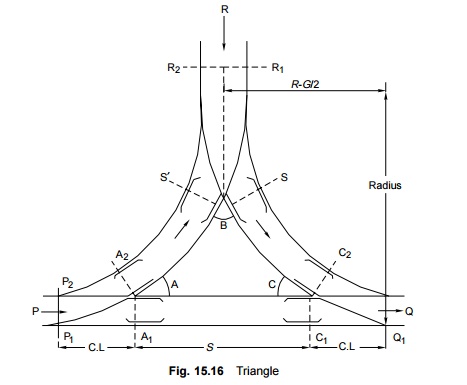Chapter: Civil : Railway Airport Harbour Engineering : Railway Engineering : Track Junctions and Simple Track Layouts
Railway Track Junctions: Triangle

Triangle
A triangle (Fig. 15.16) is mostly
provided in terminal yards for changing the direction of an engine. Turntables
are also used for this purpose, but are costly, cumbersome, and present a lot
of problems in maintenance. Normally, a triangle is provided if enough land is
available. A triangle consists of one symmetrical split at R and two turnouts
at P and Q along with lead rails, check rails, etc.
To change the direction of an engine standing at P, it is
first taken to R, then to Q, and then back to P. By following these movements,
the direction of the engine gets changed. The concept of change of direction of
the engine was more relevant in the case of steam locomotives and is not
applicable to electric and diesel locomotives, which can be operated
conveniently from both sides. With the phasing out of steam locomotive on
Indian Railways, the triangle is mostly redundant.
Related Topics